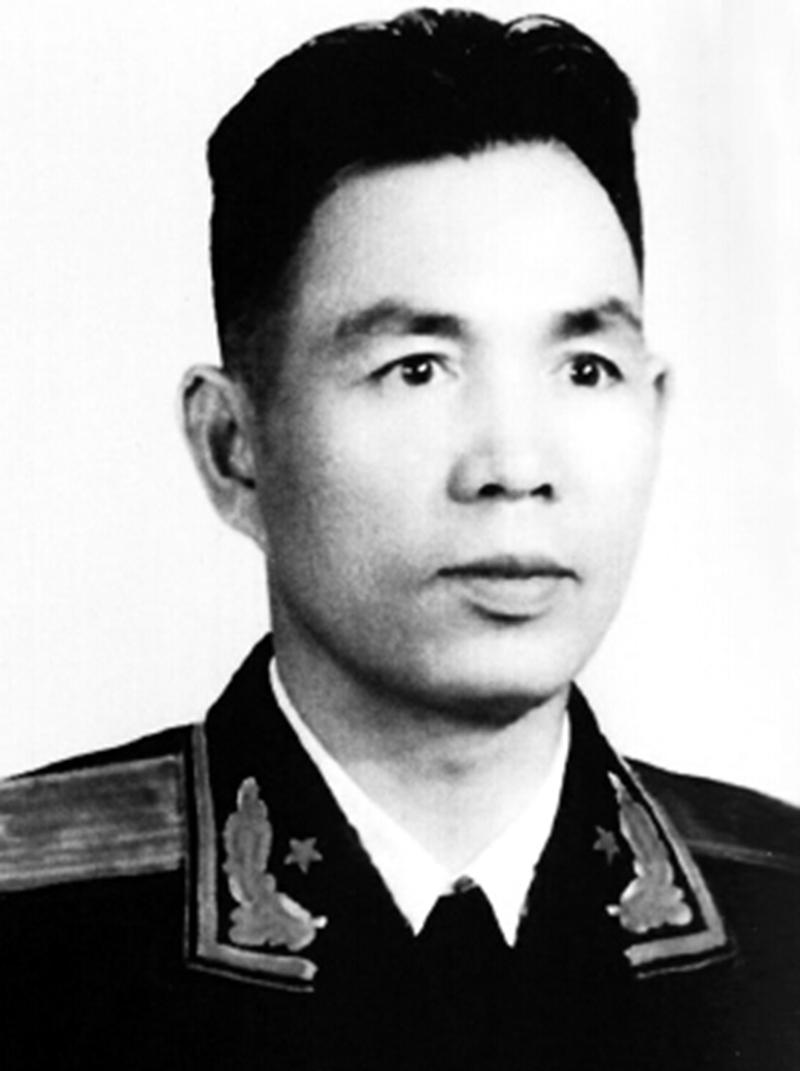"Bold General" Ding Sheng was born in 1913, a native of Jiangxi, and in 1930, the 17-year-old Ding Sheng saw the Red Army passing by their village, became envious of the Red Army, and joined the Red Army with six young people from the same village. After joining the Red Army, the leader admired this clever and clever young man very much, and specially made him a messenger, responsible for transmitting intelligence for the Red Army.

It is worth mentioning that In his later years, General Ding Sheng always claimed to be an old correspondent of the Red Army, and of course there was a reason for this. In the early days of joining the Red Army, Ding Sheng had always been engaged in the position of a correspondent, serving as a signal officer in the regiment, a signal officer in the division, and even a signal officer in the military department.
According to Ding Sheng, the red army period was different from the TV series, when the Red Army fought wars by messengers to convey orders in "flag language": the command flag in the regiment was very large, the command flag of the division headquarters was smaller, and the command flag of the military department was even smaller. Ding Sheng, the three command flags, had all been in contact with them and had also used them to convey orders. This is very different from the war we imagined, and we don't know why the command flag is getting smaller and smaller?
Although Ding Sheng was clever and clever, in the countryside of that era, few children could read, and Ding Sheng was the same, when he joined the Red Army, he was almost illiterate, so the promotion speed was not fast, and he had always served as a messenger. However, Ding Sheng worked hard and was kind to the people, and in 1932, the Red Army established the General Political Department, and Ding Sheng was sent to the General Political Department to serve as a messenger for Wang Jiaxiang.
Wang Jiaxiang was the director of the General Political Department, a highly qualified student who had studied in the Soviet Union and was one of the "twenty-eight and a half Bolsheviks". In 1930, Wang Jiaxiang returned from the Soviet Union and joined the Propaganda Department, where he served as an officer. During his time in the Central Soviet Region, Wang Jiaxiang participated in the creation of the Central Base Area and served as vice chairman of the Military Commission of the Chinese Soviet Republic, and was one of the leaders of the Central Soviet Region.
In February 1932, the Red Army established the General Political Department, Wang Jiaxiang was appointed director of the General Political Department, and Ding Sheng was also sent to Wang Jiaxiang's side as his correspondent. In 1933, Wang Jiaxiang was injured by a Kuomintang air raid bomb during a meeting in the Soviet District, and shrapnel entered his body, and he was forced to go to the rear hospital of Ruijin for medical treatment. Shortly after being treated in the hospital, Wang Jiaxiang was discharged from the hospital and recuperated in the rear, and as a correspondent, Ding Sheng followed Wang Jiaxiang and undertook the work of communication and security.
At that time, Ding Sheng was only 20 years old and was a young man with unlimited vitality, and Wang Jiaxiang also liked Ding Sheng's cleverness very much. One day, Wang Jiaxiang chatted with Ding Sheng and asked Ding Sheng if he could read? Ding Sheng was a little embarrassed to tell the chief that he was illiterate. After listening, Wang Jiaxiang began to teach Ding Sheng to write hand in hand, and even lit candles at night to teach him to read.
It is worth mentioning that after the sacrifice of the famous Red Army general Huang Gongluo, in order to commemorate him, the Red Army established a Huang Gongluo school, and Wang Jiaxiang sent Ding Sheng to this school shortly after teaching Ding Sheng. After Ding Sheng graduated, Wang Jiaxiang wrote a handwritten letter to the Red Third Army and recommended Ding Sheng. Ding Sheng was directly promoted from an ordinary correspondent to the instructor of the Red Third Army Health Brigade, and since then he has stood out, and after the founding of the People's Republic of China, he was awarded the rank of major general and became the founding general.
It can be said that Ding Sheng's eventual transformation from a messenger to a general was inseparable from Wang Jiaxiang's help, and it was precisely because of Wang Jiaxiang's recommendation that Ding Sheng slowly grew up, and only then did he have the lone army go deep into the hinterland of the Gui clan during the Liberation War and completely annihilate the Gui clan's ace Steel Seventh Army; only then did he command the great victory of the war of self-defense and counterattack against India after the founding of the People's Republic of China. In his later years, Ding Sheng recalled that when Wang Jiaxiang was, he said emotionally: "Director Wang is really a good person, serving as a teacher for a lifetime as a father for a day, but unfortunately I never saw him again."